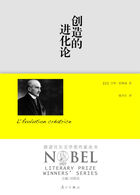preacher would have said a great decree of sanctification, a man of moderation and politeness will say a high pitch of virtue." In the advice to a good preacher the following counsels are given: "(1) His subjects must be confined to the social duties.(2) He must recommend them only from rational considerations; viz., the beauty and comely proportions of virtue, and its advantages in the present life, without any regard to a future state of more extended self-interest.(3) His authorities must be drawn from heathen writers; none, or as few as possible, from Scripture.(4) He must be very unacceptable to the common people." " The scattering a few phrases in their sermons, as harmony, order, proportion, taste, sense of beauty, balance of the affections, will easily persuade the people that they are learned; and this persuasion is to all intents and purposes the same thing as if it were true.It is one of those deceitful feelings which Mr.Hg in his essays has shown to be beautiful and useful." In illustrating the third counsel he says: " It is well known there are multitudes in our island who reckon Socrates and Plato to have been much greater men than any of the apostles, although (as the moderate preacher I mentioned lately told his hearers) the apostle Paul had a university education and was instructed in logic by Gamaliel.Therefore let religion be constantly and uniformly called virtue, and let the heathen philosophers be set up as great patterns and promoters of it.Upon this head most particularly recommend M.Antoninus by name, because an eminent person of the moderate character says his `Meditations' are the best book that ever was written for forming the heart." The effect of this accommodation of religion to the {84} world is graphically and truly described: "The necessity of such a conduct cannot be denied when it is considered what effect the length and frequency of public devotion have had in driving most of the fashionable gentry from our churches altogether." "Now the only way to regain them to the church is to accommodate the worship as much as may be to their taste." "I confess there has sometimes been an ugly objection thrown up against this part of my argument; viz., that this desertion of public worship by those in high life seems, in fact, to be contemporary with, and to increase in a pretty exact proportion to, the attempts that have been made and are made to suit it to their taste."Hutcheson's works got fit audience in his own day, but did not continue to be much read after his death.In his mode and manner of writing he is evidently indebted to the wits of Queen Anne, such as Shaftesbury, Bolingbroke, Pope, and Swift, who were Frenchifying the English tongue, polishing away at once its roughness and its vigor, introducing the French clearness of expression, and, we may add, the French morals.Hutcheson has their clearness, but is without their liveliness and wit.His style is like a well-fenced, level country, in which we weary walking for any length of time; it is not relished by those who prefer elevations and depressions, and is disliked by those who have a passion for mountains and passes.He ever maintains a high moral tone but it is doubtful whether he has retained for morality a sufficiently deep foundation.
His philosophy is undoubtedly an advance upon that of Locke, and rises immeasurably above that of those professed followers of Locke in England and France, who in the days of Hutcheson were leaving out Locke's reflection, and deriving all man's ideas from sensation, and all his motives from pleasures and pains.His view of the moral faculty is correct so far as it goes.He represents it as natural to man, and in his very constitution and nature.There may even be a propriety in calling it a <sense> with the qualifying phrase <moral>, inasmuch as, like the senses, it is a source of knowledge, revealing to us certain qualities of voluntary acts or agents, and inasmuch as it has always feeling or sensibility attached to its exercises.
But, on the other hand, his view of the moral power falls greatly beneath that of the great English moralists of the previous century, and below that of the school of Clarke {85} in his own day.The word sense allies the conscience too much with the animal organism, and the whole account given of it separates it from the reason or higher intelligence.On this point he was met, immediately on the publication of his views, by Gilbert Burnet, who maintains that moral good and evil are discerned by reason; that there is first reason, or an internal sense of truth and falsehood, moral good and evil, right and wrong, which is accompanied by another succeeding internal sense of beauty and pleasure; and that reason is the judge of the goodness and badness of our affections and of the moral sense itself.
Hutcheson does speak of the moral sense as being superior in its nature to the other senses, but he does not bring out so prominently and decisively as Butler did its supremacy and its right to govern.
If his theory of the moral power is superficial and defective, his account of that to which the conscience looks is positively erroneous.He represents virtue as consisting in benevolence, by which he means good-will.This view cannot be made to embrace love to God, except by stretching it so wide as to make it another doctrine altogether; for surely it is not as a mere exercise of good-will that to love God can be described as excellent.His theory is especially faulty in that it overlooks justice, which has ever been regarded by our higher moralists as among the most essential of the virtues.Nor is it to be omitted that his moral system is self-righteous in its injunctions, and pagan in its spirit.No doubt he speaks everywhere with deep admiration of the morality of the New Testament; but the precepts which he inculcates, are derived fully as much from Antoninus and the Stoics as from the discourses of our Lord, and the epistles of the apostles; and we look in vain for a recommendation of such graces as repentance and humility, meekness and long-suffering.
By bringing down morality from the height at which the great ethical writers, of ancient and modern times, had placed it, he prepared the way for the system of Adam Smith, and even for that of Hume.Smith was a pupil of his own, and Hutcheson was brought into contact with Hume.Hume submitted to Hutcheson in manuscript the " Third Part of his Treatise of Human Nature," that on morals, before giving it {86} to the world.The remarks which Hutcheson offered have been lost, but we can gather what they were from the letter which Hume sent him on receiving them, and which has been preserved.Hutcheson most characteristically objects to Hume, that he had not expressed a sufficient warmth in the cause of virtue, and that he was defective in point of prudence.Was this all that the high moralist Hutcheson had to object to the founder of modern utilitarianism? On the publication of his " Institutes of Moral Philosophy,"Hutcheson sends a copy of it to Hume, who remarks upon it, specially objecting to it as adopting Butler's opinion, that our moral sense has an authority distinct from its force and desirableness g, but confessing his delight " to see such just philosophy, and such instructive morals, to have once set their foot in the schools.I hope they will next get into the world, and then into the churches." Yes, this was what the rationalists wished in that day, and what they wish in ours, to get their views <into the churches>.Hutcheson, though disapproving of the philosophy of Hume, and refusing to support him as a candidate for the chair of moral philosophy in Edinburgh, which he himself declined, had not retained sufficiently deep principles to enable him successfully to resist the great sceptic who had now appeared.Error has been committed, God's law has been lowered, and the avenger has come.















